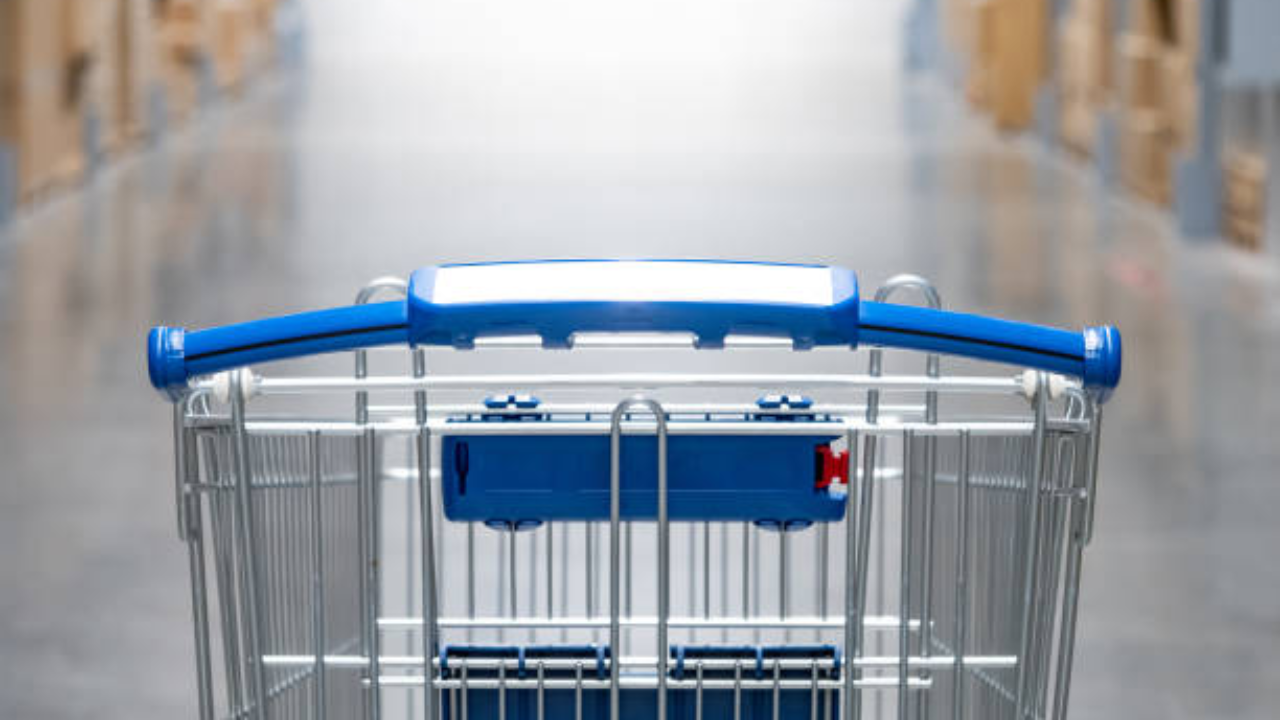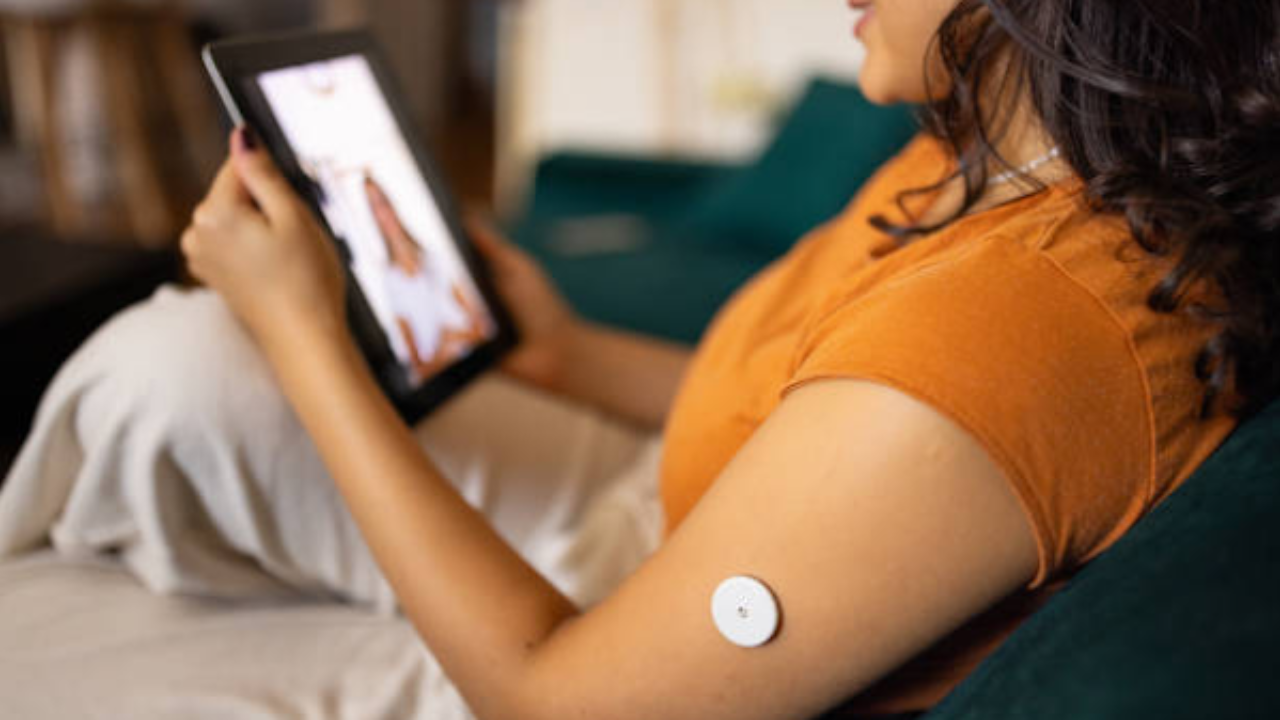4 Proven Costco Finds from a Diabetes Educator

Navigating the world of T1D meal planning or finding easy diabetes-friendly meals for Type 2 diabetes can feel like a maze
It’s stressful, time-consuming, and often leads to confusion at the grocery store. But what if we told you that your favorite bulk-shopping paradise, Costco, holds the key to simplifying your blood sugar management tips? It's time to discover some game-changing, budget-friendly foods that make carb counting for diabetes easier than ever.
As a Registered Dietitian and Certified Diabetes Educator who lives with diabetes, the search for quick, healthy, and blood-sugar-stable options is a personal quest. The bulk-shopping experience saves money, which is a huge benefit when you’re focused on grocery shopping on a budget, but finding the right items is crucial. The checkout lines might be a beast, but the sheer value and incredible finds for a diabetes dietitian make it worthwhile!
The secret to stable blood sugar is protein, fiber, and minimal highly processed ca...
Sam’s Club Finds for Diabetics

Living with diabetes, whether it’s Type 1 (T1D) or Type 2 (T2D), often means juggling meal planning and grocery shopping
It can feel overwhelming, but it doesn't have to! Discovering budget-friendly, easy-to-prep, and blood-sugar-smart foods is the ultimate game-changer. That's where a specialist, like a diabetes dietitian and Diabetes Educator, comes in to make managing your health simple and delicious.
A registered dietitian and certified diabetes educator recently shared top grocery finds from Sam’s Club to boost your blood sugar control and simplify your life. Forget the stress; it's time to learn how to make smart choices without giving up great taste!
A registered Type 1 diabetes dietitian and Type 2 diabetes dietitian know the importance of balancing protein, fiber, and carbohydrates for steady blood sugars. These four items are excellent additions to your routine for T1D meal planning and general blood sugar management tips:
1. Real Good Foods Chicken Chunks
For those s...
Best Subway Menu Choices for Diabetics

Managing Type 1 diabetes (T1D) or Type 2 diabetes (T2D) can feel like a constant puzzle, especially when hunger hits while facing a fast-food menu
Many wonder if anything can be eaten that won't totally derail blood sugar management tips? Absolutely! A qualified Diabetes Educator and specialized T1D dietitian (or T2D dietitian) can show people how to navigate a place like Subway like a pro.
Skipping meals or grabbing a quick-fix high-carb option can lead to unpredictable blood sugar swings. There's no need to stress! These simple tips simplify T1D meal planning and give individuals the power to choose wisely right now.
Subway, surprisingly, offers some great opportunities for a balanced, diabetes-friendly meal. The key is knowing what to pick and how to customize it. Here is a guide to some top options for stable blood sugars:
1. The Rotisserie Chicken Sub
The 6-inch Rotisserie Chicken sub is often a primary recommendation. Here's why this option is fantastic for carb counting ...
T1D Alcohol Guide to Safe and Smart Drinking

Living with Type 1 Diabetes (T1D) means constantly balancing blood sugar, carb counting, and meal planning
So, it’s natural to wonder, "Can I drink alcohol with T1D?" The answer isn't a simple yes or no, but with the right knowledge and preparation, many people with T1D can enjoy alcohol safely. Let’s dive in and unlock the secrets to responsible drinking while managing your diabetes.
Understanding Alcohol's Impact on Blood Sugar
Alcohol throws a curveball at your blood sugar. Initially, some alcoholic drinks, especially those high in sugar (like cocktails or sweet wines), might cause a temporary rise in blood sugar. However, the bigger concern is often what happens after that initial spike. Your liver, which usually helps keep your blood sugar stable by releasing stored glucose, gets busy processing the alcohol instead. This can lead to a drop in blood sugar, sometimes several hours after you’ve stopped drinking. This delayed hypoglycemia is a major risk for individuals with T1D...
Diabetes Tricks to Tame Foot to Floor Syndrome

"Foot to Floor" Syndrome happens right after you wake up and put your feet on the floor.
It’s when the simple act of standing up and starting to move triggers a second surge of those same "wake-up" hormones. These hormones signal your liver to dump even more glucose into your bloodstream, giving you that unwelcome morning spike.
This can be a challenge for both Type 1 Diabetes Dietitian clients and Type 2 Diabetes Dietitian clients, particularly those on insulin. The good news is that understanding this hormonal timing is the first step to conquering it.
Proven Steps to Tame the Spike
It's a frustrating, all-too-common scenario for many people managing diabetes. You wake up, check your blood sugar, and the number is right where you want it. Success! But then, you step out of bed, start your morning routine, and within an hour, your glucose level has suddenly spiked. Sound familiar? This unexpected morning rise is what many in the diabetes community refer to as the "Foot to Floo...
Diabetes Guide to Staying Healthy at High Altitude

Ever wonder why your blood sugars go wild when you're hitting the slopes or flying high?
You're not alone! Living with diabetes, especially Type 1 (T1D) or Type 2 (T2D), means keeping an eye on a lot of things and altitude is definitely one of them. In this ultimate guide, we'll explore how elevation can impact your blood sugar and give you proven tips to stay in control, no matter how high you go!
The Altitude Rollercoaster
Imagine this: you're at the top of a mountain, breathing in the crisp air. For your body, this change in altitude is a bit like a surprise party; it sees it as stress. And what happens when your body is stressed? It releases a hormone called cortisol. High cortisol levels can make you more insulin resistant, meaning your body struggles to use insulin effectively, leading to higher blood sugar levels. You might notice your blood sugar creeping up, making you feel frustrated when you're trying to enjoy your adventure.
But here's the wild part: altitude is a dou...
Discover the 5 C’s of Diabetes

Living with diabetes can feel complicated, but it doesn’t have to be
Whether you’re managing Type 1 Diabetes (T1D) or Type 2 Diabetes (T2D), or you're simply curious about a friend or family member's health, learning the basics is the first step to feeling in control.
Forget the overwhelming medical jargon. We’re going to focus on the essential building blocks for thriving with diabetes: the 5 C's of Diabetes.
The 5 Essential C's
This proven framework helps you manage your blood sugar and overall health by focusing on five key areas of focus. Think of it as your simple roadmap to boost your blood sugar management tips.
1. Carbohydrates (Carb Counting)
This is the most direct way food impacts your blood sugar. Carbohydrates (carbs) are the sugars, starches, and fiber in food. When you eat them, your body breaks them down into glucose (sugar), which enters your bloodstream.
T1D Meal Planning - For individuals with T1D, carb counting for diabetes is crucial. You need to estimate t...
Subtle Signs of Type 2 Diabetes

The world of health can feel overwhelming, especially when terms like diabetes and blood sugar are thrown around
You may have heard of a friend or family member with Type 1 Diabetes (T1D) or Type 2 Diabetes (T2D), but do you know what to watch out for in your own life?
Type 2 Diabetes, in particular, often sneaks up on people. The early warning signs can be so mild that they go unnoticed for a long time. That’s why we’re giving you this guide so you can discover the crucial signs and take control of your health right now.
The journey to managing T2D starts with recognizing the first symptoms. And that’s where a specialized healthcare team, including a Diabetes Educator and a Type 2 Diabetes Dietitian (or T2D Dietitian), plays a vital role.
Here are 5 early warning signs of Type 2 Diabetes that everyone should recognize:
1. Extreme Thirst and Frequent Bathroom Trips
Imagine feeling like you can never drink enough water, and then needing to use the restroom every hour, even duri...
7 Proven Diabetes Tips

Are you tired of confusing diabetes advice? Have you spent countless hours trying to figure out the right way to eat, only to feel frustrated?
Managing diabetes, whether it’s Type 1 (T1D) or Type 2 (T2D), can feel like a massive challenge, but it doesn't have to be.
The secret to success often lies in learning from a specialist: a Diabetes Dietitian or a certified Diabetes Educator. These experts can translate complex science into simple, actionable steps. They are your allies in mastering blood sugar management tips and achieving better health.
The Diabetes Difference
A T1D dietitian or T2D dietitian helps you cut through the noise with facts and personalized strategies.
Here’s the simplest way to understand the difference between the types:
- Type 1 Diabetes (T1D): Think of your pancreas as an employee who just quit. It went on strike and refuses to show up to work ever again. This is an autoimmune condition where the body mistakenly destroys the insulin-producing cells. It ...
Top 4 Tim Hortons Picks for Diabetics

Life with Type 1 Diabetes (T1D) or Type 2 Diabetes (T2D) doesn't stop just because a person needs a quick stop for food
Maybe they’re on the way to class, heading to a game, or just need a satisfying meal that won't send their blood sugar soaring. The good news? Eating out while practicing good carb counting for diabetes is completely possible even at a favorite coffee and donut spot!
A Diabetes Educator and a T1D dietitian (who also lives with T1D) understands the importance of stable blood sugar and the struggle of finding fast, easy options. The focus is always on protein, fiber, and smart choices. People are encouraged to explore these quick tips to confidently navigate the menu.
Here are 4 easy diabetes-friendly meals a person can confidently order at Tim Hortons that deliver the right balance for better blood sugar management.
The Ultimate Go-To Orders
When looking for a quick meal, the magic formula is simple: high protein, moderate fat, and manageable carbohydrates. Thi...

